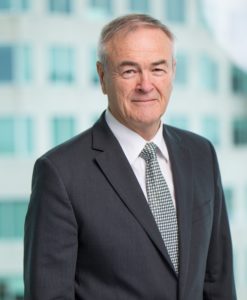By Warren MacKenzie, for Canadian Moneysaver
Special to the Financial Independence Hub
In Part One of this series we mentioned how ‘living in the moment’ — that is being free of ideas of self and the things we wish for — is an opportunity for happiness.
In this part we will first explain how happiness comes from our thoughts, not our financial circumstances, and how making money usually generates more happiness than spending it does. We will then look at how money can buy happiness when you give it away, and how it’s not enough to manage money wisely: we also have to use our money wisely.
For example, let’s imagine two people with the same size investment portfolio living in almost identical apartments. In one case, the individual who may have experienced a windfall is overjoyed to be living on his or her own, while the other person, who may have suffered a financial loss, is sad and embarrassed to now be living in such a small apartment. One person is happy and one is sad. The difference is not based on their different circumstances it is entirely based on their thoughts about their situation.
In his book, The Art of Happiness, Dalai Lama says, “Once basic needs are met – the message is clear: We don’t need more money, we don’t need greater success or fame, we don’t need the perfect body or the perfect mate – right now, at this very moment, we have a mind, which is all the basic equipment we need to achieve complete happiness.”
Overcoming challenges
For most successful people, it’s their accomplishments that gives them the greatest happiness, whether that includes looking after their family, accumulating wealth, or showing resilience and problem solving through difficult situations. Successful people know that a happy life is not a life without problems or negative circumstances: rather it is one where we have the opportunity to overcome challenges and problems.
It’s important to realize that most often, the greater the challenge, the greater the happiness that comes from overcoming it. If parents make things so easy for their children that they never have to work hard and learn to overcome challenges, (including financial challenges) their children may not develop the positive self-image and confidence that comes from solving problems and creating their own financial security.
Mountain climbers don’t climb easy hills: they climb challenging rock faces because the more difficult the challenge the greater their enjoyment from overcoming the challenge. This is one reason why wise parents don’t protect their children from all challenges, but rather create an environment where their children experience and learn to overcome all types of challenges.
A large Inheritance is not always a source of Happiness
You can give a child many things, but happiness is something that they need to achieve on their own. If you want your children to be strong and capable and financially secure, it’s best to leave them with good values, a good work ethic, and at an early age help them learn sensible investing and money management skills.
Wealthy parents should be aware that inherited wealth almost never delivers the same level of happiness as is enjoyed by the people who created the wealth. In terms of leaving an estate, the late Scott Fithian, author of Values Based Estate Planning, said that if you instill a child with good values, he or she will probably do very well. If the child has good values and you leave a large estate, the child may go on to change the world for the better. If the child does not have good values and you leave a large estate : you’re just asking for trouble.
Most people find happiness and a purpose in life from gainful employment and from achieving financial security. Thomas Carlyle said that a person without a cause is like a ship without a rudder. Without a cause or a purpose we feel bored, and boredom and happiness don’t go together. Wealthy parents who provide for their children without encouraging them to develop their own interests or career path have to be careful that they aren’t taking away their child’s purpose in life.
A Harvard Study of 4,000 millionaires and their children concluded that both parents and children are happier when the parents gave their money away and let the children create their own financial security and conditional happiness.
Helping other people
Here is part of an ancient Chinese proverb. “If you want to be happy for an hour – take a nap. If you want to be happy for a day – go fishing. If you want to be happy for a year – inherit a fortune. If you want to be happy for a lifetime – help other people.”
There is a saying that money can’t buy happiness but there is a Harvard study that disproves this. This study shows that money can buy happiness: when you give it away! One of the greatest sources of happiness comes from helping other people and physiology helps explain why this is so. It turns out that the hormone Oxytocin is released into our brain when we do this. This is the same hormone as released during sex and breast feeding. There is a good reason why this hormone is sometimes called the Helpers High.
From the magazine, Psychology Today, we learn that students who volunteer have better grades, are less likely to use drugs and less likely to become pregnant. And the research shows that seniors who volunteer fifteen minutes per day, four days a week, are healthier and the health benefits are as good as giving up smoking or exercising three times a week.
In a Harvard research study of the spending habits of 600 Americans, the best indicator of happiness was not how much they spent on themselves, it was the amount they gave away to help other people. Both wealthy and not so wealthy individuals who start giving back to their community usually say it is the activity that gives them the greatest joy.
A case could be made that we should give until it hurts: but as a minimum, individuals should have a financial plan that shows how much of their net worth is ‘surplus,’ that is, unnecessary to achieve their goals, and then they can enjoy life more by having a plan to spend or give away their ‘surplus’ funds.
Understand the cost of wanting protection against every possible risk
Rich or poor, we all want to be safe and have some ‘insurance’ against the risks we may face in an unknown future. But many individuals who have more than enough capital to achieve their goals lose an opportunity for greater happiness because they believe that by building an even larger investment portfolio they can protect themselves against every possible risk.
The problem is that they don’t consider some of the hidden costs of trying to protect against everything. A house fire or a car accident are risks and we know that the insurance premium is the cost to protect against these risks. But if you want protection against possible health costs, a 1929 style stock market crash, fraud, government intervention, and Canada becoming a ‘failed state,’ then the costs are more difficult to calculate. But there are non-financial costs and they include:
■ Missing the enjoyment of a better lifestyle, a place in Florida, more travel and drinking better wine.
■ Missing the opportunity to create memories while wasting time thinking about possible future problems.
■ Missing the opportunity to help the children or heirs when they could most use the help.
■ Missing the opportunity to help children, nephews, and nieces gain some very important investing experience.
■ Missing the opportunity to experience the joy of helping other people and giving back to the community.
■ They pay more income tax and probate fees.
■ They increase the probability that the heirs will quarrel over the estate. It’s well established that the larger the estate the greater the probability that heirs will quarrel and the family will be torn apart.
People should also know that in the worst of disasters, such as war or famine, or breakdown of the social order, having friends and family and a community that cares about you is better than having a large investment portfolio.
It’s a shame to waste hard-earned Capital
No one wants to waste capital, but it is wasted if you don’t get to spend it or give it away and the large estate causes more grief than happiness for your heirs. And capital is also wasted if the wealth is frivolously spent by heirs or if the large estate causes siblings to quarrel and stop speaking to each other.
In summary, it’s our thoughts and not our circumstances that create happiness, and a happy life is not a life without problems and challenges. Much happiness comes from the self confidence which we get when we have practice in facing and solving problems – including financial problems. Helping other people can be a greater source of joy than hoarding surplus funds in the hope that greater wealth will solve all future problems. Wealth is wasted if it’s not used to create happiness.
 Warren MacKenzie studied, religion, philosophy and psychology at university, and after completing a B.Ed. at Dalhousie University he began teaching school in Nova Scotia. He left teaching to become a Chartered Professional Accountant, where he specialized as a Bankruptcy Trustee. Eventually he left public accounting to work as a financial advisor with a major brokerage firm, where he earned the CFP, CIMA and CIM designations.
Warren MacKenzie studied, religion, philosophy and psychology at university, and after completing a B.Ed. at Dalhousie University he began teaching school in Nova Scotia. He left teaching to become a Chartered Professional Accountant, where he specialized as a Bankruptcy Trustee. Eventually he left public accounting to work as a financial advisor with a major brokerage firm, where he earned the CFP, CIMA and CIM designations.
Warren is the author of a number of books including, Zen and The Art of Wealth, The Philanthropic Family, The Unbiased Advisor and he is co -author of New Rules of Retirement and The C.A.R.P. Financial Planning Guide. He is a regular contributor to The Canadian Money Saver Magazine and the Financial Facelift column in the Globe and Mail.
Warren believes that it’s not enough to manage money wisely. It is also important for investors to have the information that allows them to use their money wisely. To use money wisely investors need to know how much of their capital is essential, i.e., necessary to achieve all their goals, and how much is surplus, i.e., money which can be spent or given away. On weekends he can be found at his farm working on his drystone rock wall.
This article originally appeared in Canadian MoneySaver and is republished here with permission.



Excellent article. Thank you Mr. MacKenzie and also Mr. Chevreau for hosting it